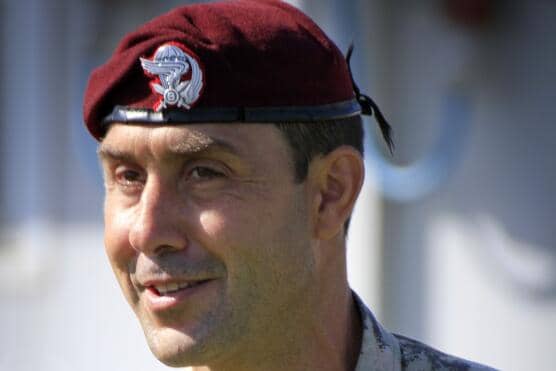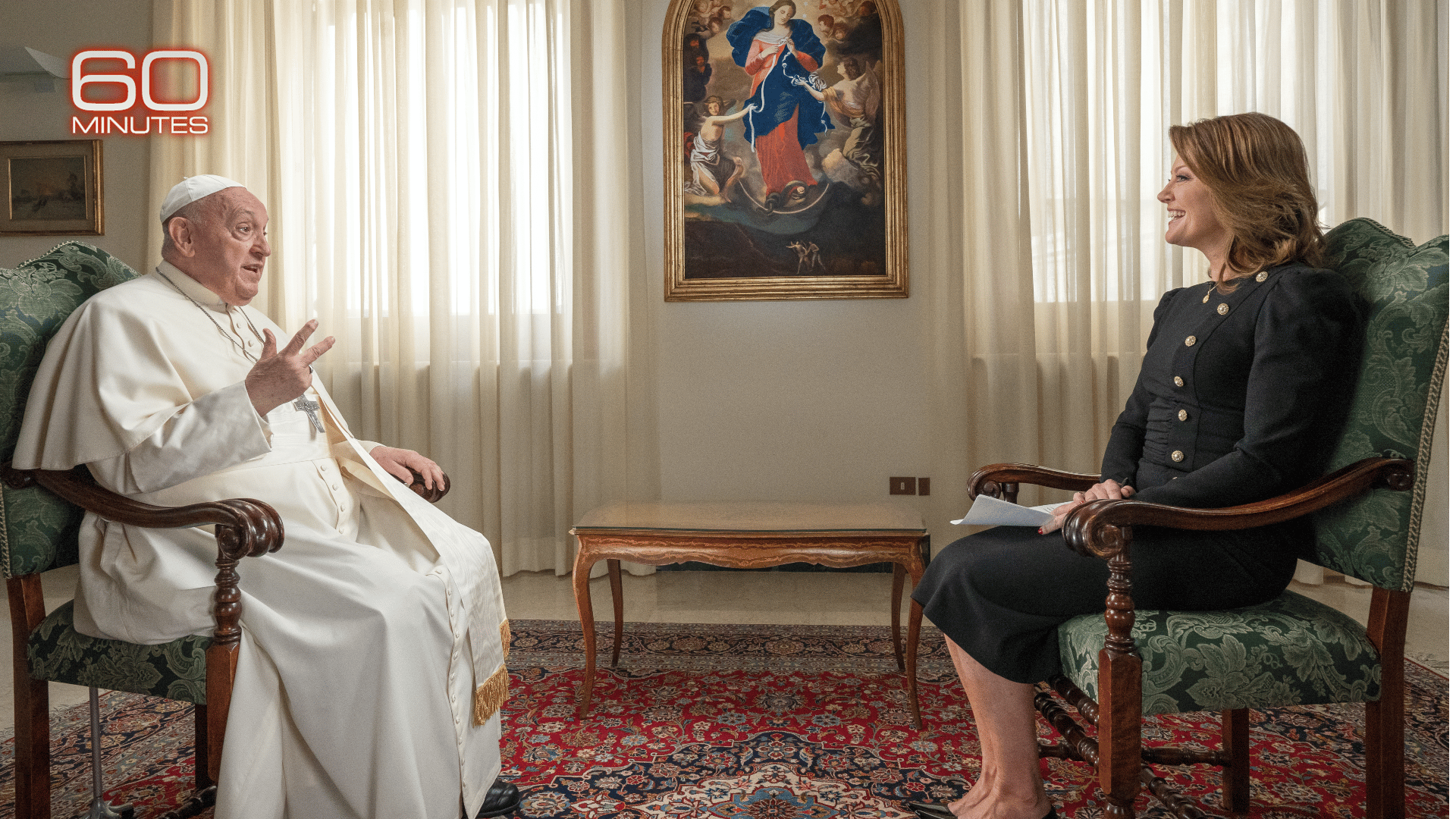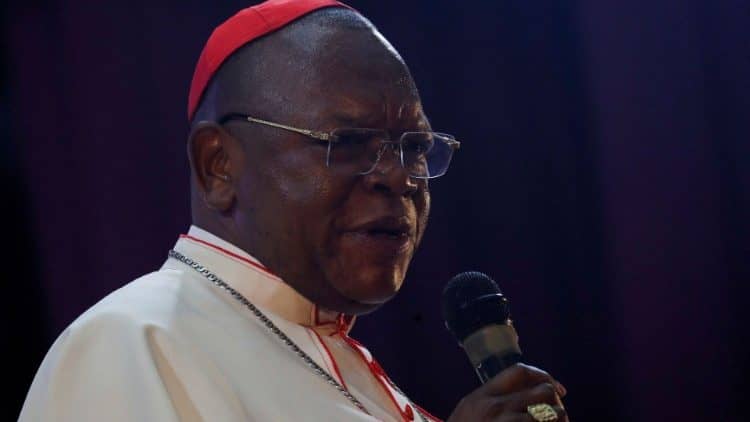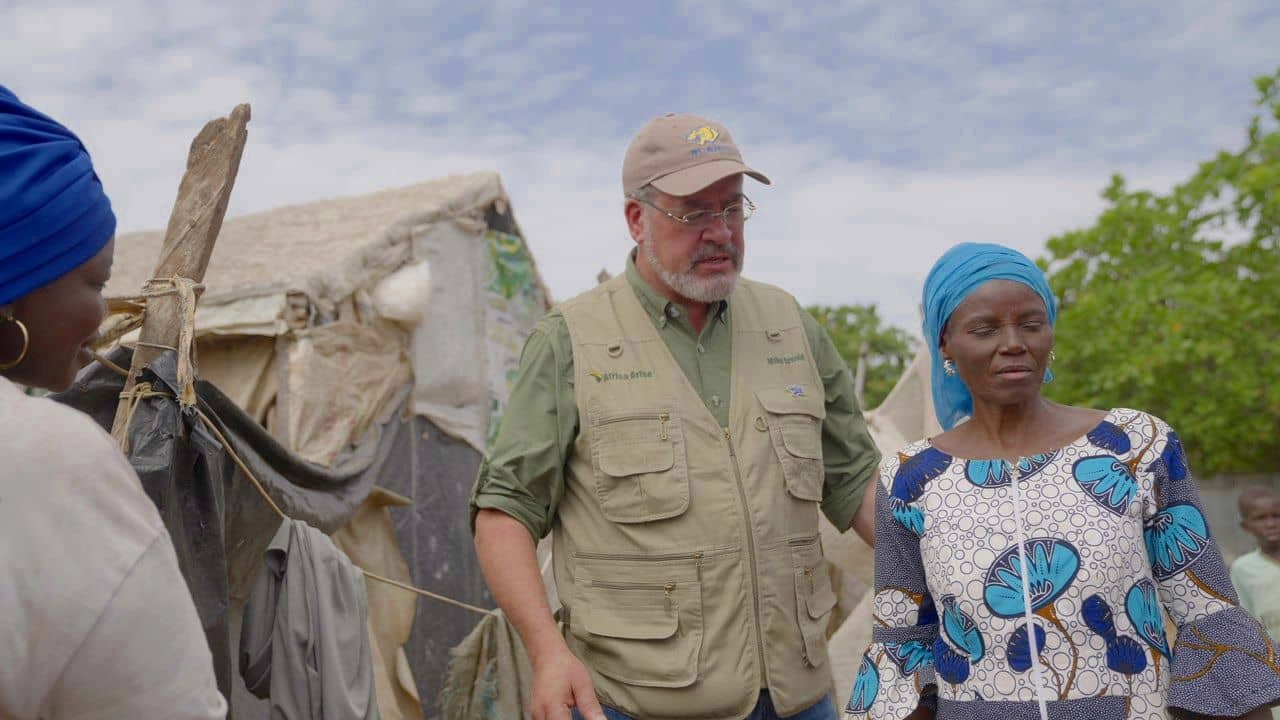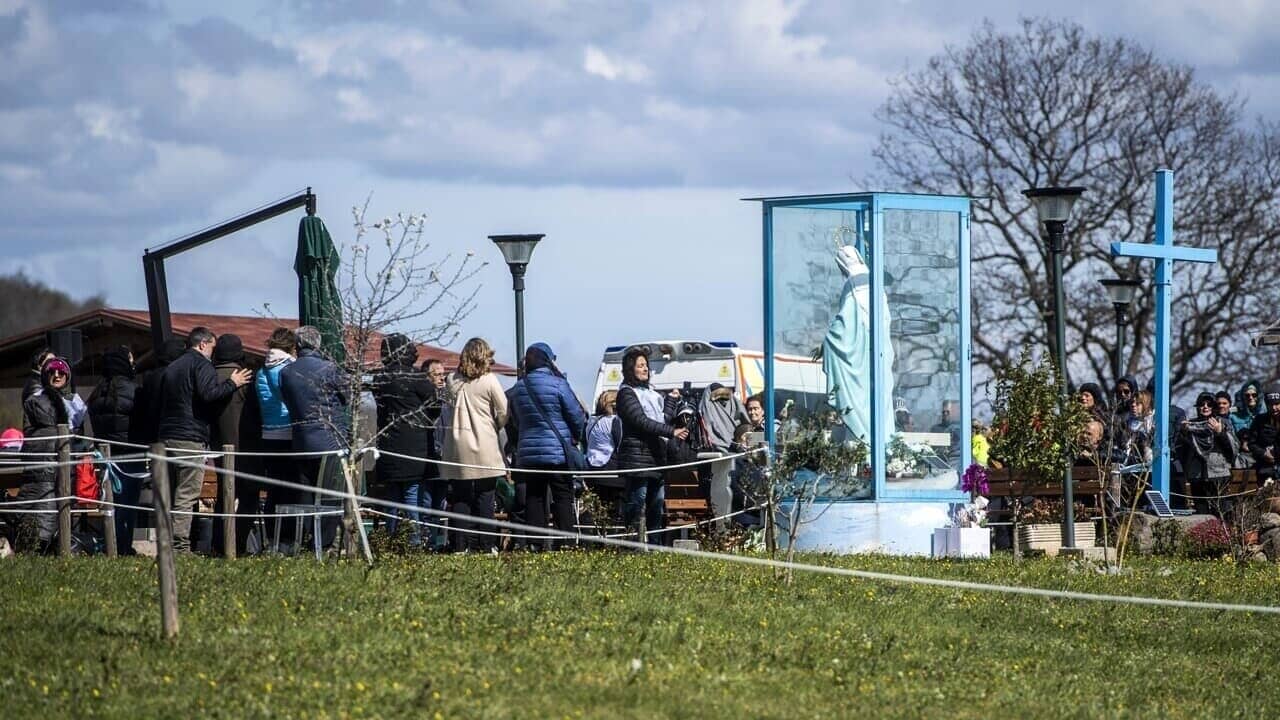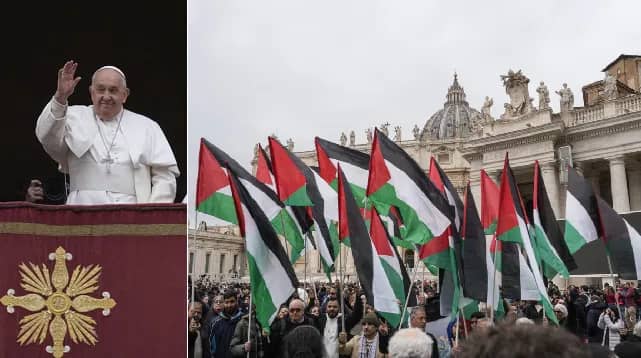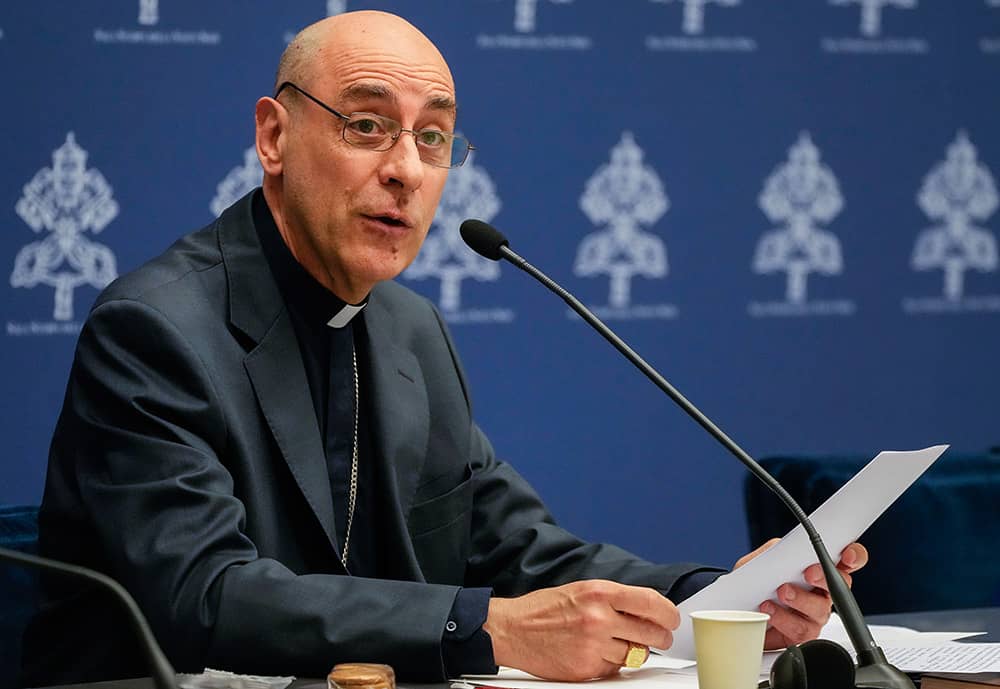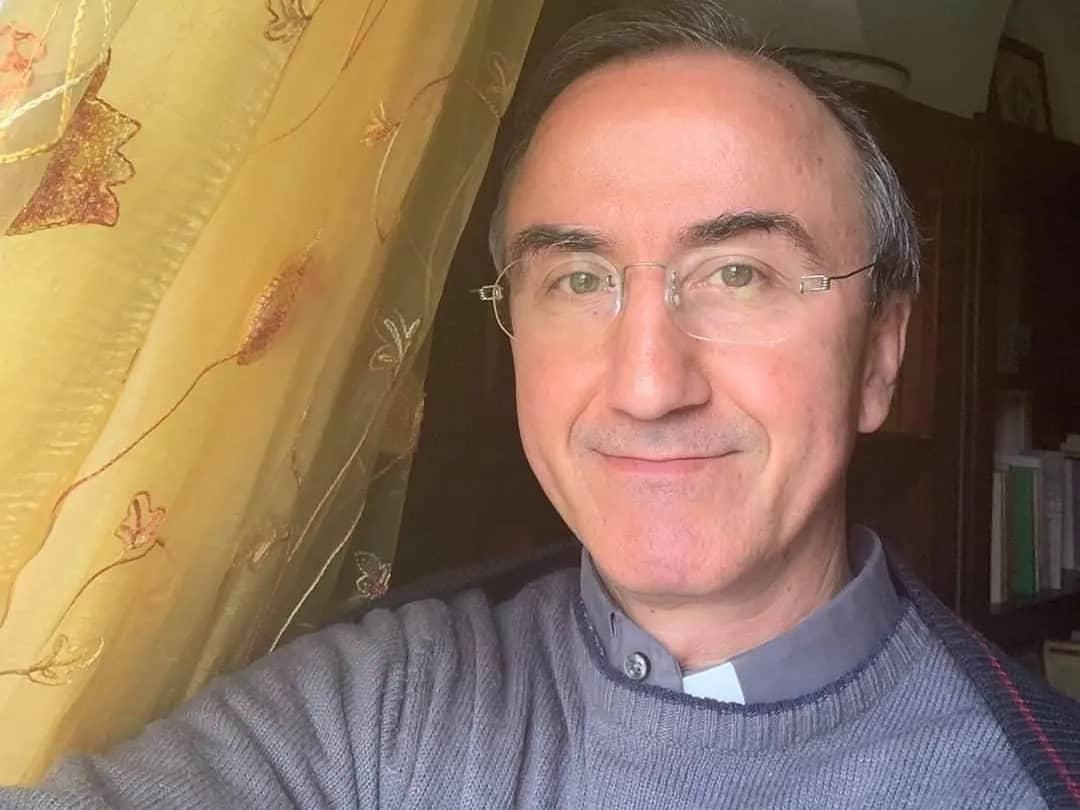ROME – Two of Europe’s leading prelates have penned a letter ahead of parliamentary elections next month, when far-right parties embracing EU skepticism are expected to make significant gains, stressing the importance of solidifying European unity and identity.
The letter, published ahead of European Day on May 9, was signed by Cardinal Matteo Zuppi of Bologna, president of the Italian Bishops Conference (CEI) and the pope’s personal peace envoy for the war in Ukraine, and Bishop Mariano Crociata of Latina and president of the Commission of Episcopal Conferences of the European Union (COMECE).
In the letter, Zuppi and Crociata called the European Union “a friend,” saying their greatest desire for the EU is that “what you represent and what you are can be strengthened.”
“You need this because people often speak badly of you, and many forget how many important things you do!” they said, pointing to various EU actions and policies during the COVID-19 pandemic as an example.
They noted that the EU was established after two world wars, which came with horrors such as the Holocaust and the destruction of the atomic bombs.
With this legacy, the EU’s founders – Frenchman Robert Schuman, German Konrad Adenauer, and Italian Alcide de Gasperi – felt called, on the basis of their Christian faith, “to create something that would make war impossible again onto the European soil,” they said.
Zuppi and Crociata praised the men’s vision as having been “smart, ambitious and courageous,” saying “the strength that comes from unity showed the value of the path taken and the possibility of correcting, adjusting and understanding.”
Stressing the importance of “togetherness” in European identity, they suggested that the time has come for the EU to adopt “new institutional reforms in order to allow you taking up today’s challenges.”
“You cannot just be a bureaucracy…Directives and regulations alone do not enhance cohesion. You need a soul!” they said, noting that member countries have repeatedly lent financial assistance to others, at times bailing fellow members out of deep economic crises.
However, they noted that periods of difficulty and “stalemate” have also occurred, saying, “These grow when we lose togetherness and the vision of our shared future or when we oppose against realizing that our destiny is common and that we need to keep on building a united Europe.”
Zuppi and Crociata lamented that war has again broken out on European soil with Russia’s invasion of Ukraine, saying, Europe must “take up again the project of the founding fathers and build new peace pacts if we want the war against Ukraine to end, just like the ongoing war in the Middle East.”
“Unity must be sought as an always new and urgent task. We do not have to wait for the outbreak of another conflict to understand it!” they said.
The prelates also touched on the EU’s role on the international stage and the rise of nationalist sentiments, saying internal divisions prevent the EU from assuming “the role that would be expected from your historical and cultural stature.”
“Some would push to believe that we would be better off in isolation, whereas any one of your countries, even a large one, would be fatally reduced to the weakest position,” they said.
For the EU to remain together, “we need shared motivations, common ideals and values that are appreciated and cultivated,” they said, saying only togetherness can “overcome tensions and contrasts that economic interests bring with them in their intrinsic confrontation.”
Zuppi and Crociata lamented that currently, “anything lying beyond the borders of one’s own country seems to be far, sometimes foreign,” but insisted that “both our joint national and the European soul belong to one another.”
“From the onset you have been the Union of free and sovereign countries that ceased part of their sovereignty in favor of a common and stronger one,” they said, insisting that “no identity, no freedom of anyone is lessened.”
“On the contrary, the safeguard of everyone’s autonomy within a structured and loyal relationship with all the others is ensured,” they said, and pointed to the Christian contribution of the Christian faith in the founding of the EU.
They lamented the progressive loss of the Christian sentiment in EU policies, saying, “we suffer while seeing that you are afraid of life, do not know how to defend it and welcome it from its beginning to its end, and do not always encourage the growth of population.”
Zuppi and Crociata also pressed the EU on migration, saying, “you cannot just look inwards. You cannot live just to feel good; you need to feel good enough to help the world, to combat injustice, to fight against poverty.”
Stressing the role migrants can play in helping build a better future and the need to prevent tragedies at sea, they said Italy “is often left alone, as if this were its own problem only or the problem of just a few, which does not mean that it must close itself off.”
“Sooner or later, we will learn that responsibilities, including the ones towards migrants, can only be shared, to face and solve problems that are indeed common problems,” they said, and underlined the role of Mediterranean and African countries in coming up with a solution.
Europe, they said, is in need of “a new robust relaunch of your path as a Union towards an ever fuller integration” capable of responding to current challenges, such as a fair taxation policy, a common defense strategy, and an “assertive” foreign policy.
They also pointed to the enlargement of the EU as “a guarantee of a strength that is increasingly proportionate to the unity that you gather and express.”
“Together with democratically adopted institutional reforms, there is a need to grow a common feeling, a shared appreciation of the values that underpin our coexistence in the European Union,” they said, saying “a new sense of citizenship” is needed.
Zuppi and Crociata said this requires “a civic sense with a European outlook, the awareness of the European continent peoples that they are great people.”
Pointing to next month’s EU parliamentary elections, the prelates called the vote “a propitious and unrepeatable opportunity, to be seized without hesitation.”
They lamented that fear and insecurity in the face of difficulties often prevails, saying “this should be heard, too, in order to show that it is you the instrument and the place to face and overcome fears and threats.”
“We appeal to everyone, candidates and citizens, starting with the 16-year-olds who will be voting for the first time in some countries, to become aware of the importance to ensure this civic gesture embedded in the participation into the Union’s life and development,” they said.
To refrain from voting, they said, “is not the same as remaining neutral but to give to others the power to act without, if not against, our freedom, on which you’ll have then to take your responsibility.”
“Absenteeism has the effect of increasing mistrust of one another, the loss of the opportunity to make one’s own contribution to social life,” they said, saying this in turn cancels “any possibility and capacity to improve togetherness within the European Union.”
“Our wish for you, dearest European Union, is that this electoral round may indeed become an opportunity for revitalization, a reawakening of enthusiasm for a common path,” they said.
Zuppi and Crociata’s statement comes as polls predict significant gains for rightwing political parties across the EU, including several seats in France, Germany, and Italy.
From June 6-9, some 370 million voters in the EU’s 27 countries will cast ballots to elect the 720 lawmakers who will make up the next European Parliament.
Though centrist and left-leaning parties are expected to keep the majority of seats, significant gains are expected from the right, with voters seeking alternatives to the mainstream parties over frustrations related to an increased cost of living, soaring energy prices, the ongoing migrant influx, and a changing geopolitical landscape.
Two radical right groups in particular, Identity and Democracy (ID) and the European Conservatives and Reformists (ECR), are expected to add some 30-50 seats, rising to 22-25 percent from the current 18 percent.
In a May 10 editorial by Stefano Fontana, a veteran journalist and former consultor for the Pontifical Council for Justice and Peace, conservative Italian Catholic news site Bussola Quotidiana took issue with Zuppi and Crociata’s letter, arguing that it was interpreting Christian faith from view of pro-EU ideology, rather than the other way around.
“A worldly horizon is essential, and is the criteria for evaluating even the Christian faith, not vice-versa,” Fontana said, saying, “The European dream belongs to this pre-religious dimension, and therefore is what orients Christianity rather than being oriented by it.”
Follow Elise Ann Allen on X: @eliseannallen







